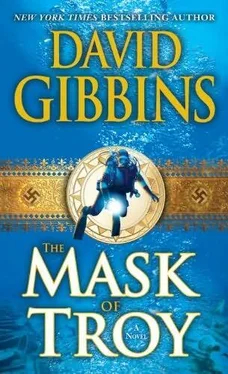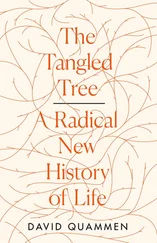David Gibbins - The Mask of Troy
Здесь есть возможность читать онлайн «David Gibbins - The Mask of Troy» весь текст электронной книги совершенно бесплатно (целиком полную версию без сокращений). В некоторых случаях можно слушать аудио, скачать через торрент в формате fb2 и присутствует краткое содержание. Жанр: Триллер, на английском языке. Описание произведения, (предисловие) а так же отзывы посетителей доступны на портале библиотеки ЛибКат.
- Название:The Mask of Troy
- Автор:
- Жанр:
- Год:неизвестен
- ISBN:нет данных
- Рейтинг книги:3 / 5. Голосов: 1
-
Избранное:Добавить в избранное
- Отзывы:
-
Ваша оценка:
- 60
- 1
- 2
- 3
- 4
- 5
The Mask of Troy: краткое содержание, описание и аннотация
Предлагаем к чтению аннотацию, описание, краткое содержание или предисловие (зависит от того, что написал сам автор книги «The Mask of Troy»). Если вы не нашли необходимую информацию о книге — напишите в комментариях, мы постараемся отыскать её.
The Mask of Troy — читать онлайн бесплатно полную книгу (весь текст) целиком
Ниже представлен текст книги, разбитый по страницам. Система сохранения места последней прочитанной страницы, позволяет с удобством читать онлайн бесплатно книгу «The Mask of Troy», без необходимости каждый раз заново искать на чём Вы остановились. Поставьте закладку, и сможете в любой момент перейти на страницу, на которой закончили чтение.
Интервал:
Закладка:
‘So,’ Rebecca said, cocking an eye at Dillen. ‘You said Homer actually watched the fall of Troy. Do you really think the Ilioupersis is an eyewitness account?’
‘The evidence is all there, in the radiocarbon analysis of the papyrus, the textual analysis, the early form of the alphabet. If Troy fell in 1200 BC, this couldn’t be much later than that.’
‘You’re not really answering my question.’
‘Tell me what you think after I’ve read it out. It’s for you to judge.’
‘Archaeology can’t tell the whole story of Troy, can it?’
Jack smiled. ‘The pottery only sings if you know how to make it sing.’
‘The immortal bard,’ Rebecca murmured. ‘That’s what Alexander Pope called Homer.’ She reached into her pocket and took out the copy of Pope’s Iliad that Dillen had given her. She opened it, and Dillen saw the inscription. To Hugh, with love and affection from Peter. Remembering our summer at Mycenae, 1938. Rebecca looked towards Hugh, then suddenly cocked her head, listening. ‘I think I can hear music. From the garden.’ She listened again. ‘ The harp.’ Dillen craned his neck. All he could hear was an echo of beating wings. ‘Don’t go to Hugh yet,’ she said. ‘In case he can hear it too.’
‘What music is it?’ Jack said.
Rebecca turned to him, her face flushed. ‘I thought I heard James play it, on his lyre at Troy.’ She turned to Dillen. ‘It was that last evening, when you went back up to your trench and thought nobody else was listening. I was on the path in Schliemann’s trench, coming up to see you. It was a children’s song. It was beautiful.’
‘We should get cracking with the text,’ Jack said. ‘And Hugh shouldn’t be out there much longer.’
Dillen smiled at Rebecca, then stepped forward to the doorway. Hugh was motionless, facing ahead. Dillen looked for the girl with the harp, barely seeing her through a shroud of mist, in utter stillness. It was as if they all were caught in the moment the girl was in. Then he saw flakes of snow falling, like ash. He remembered what else he had brought with him, and reached into his pocket, taking out the piece of pottery, black, crude, like a charred fragment, that he had taken from the ancient pyre in his excavation trench at Troy. He glanced at Jack. The pottery will sing. He put it to his nose and inhaled deeply, smelling the fires of Troy. In his mind’s eye he saw another figure, sitting with a lyre on a rocky ridge above the battleground, watching the war-bent men of Mycenae surge forward, feeling the ground shake as the sceptre of their mighty king came crashing down. Homer. Agamemnon.
He saw Hugh slowly raise his right forearm, extend his finger like a pistol, and point it forward. Dillen knew that gesture, from the classroom all those years before. It meant go for it. He took a deep breath, then listened through the stillness, straining to hear the music that Rebecca had heard.
He looked down at the lines of ancient verse. It was all true. Homer had been there, had watched the fall of Troy. In the tenth year Agamemnon had stormed and raged, had crashed down his mighty sceptre, and his men had rained down a new horror, arrows of iron. The Trojan Horse had been a ship driven by the howling blackness of the sea against the walls of Troy, to disgorge Agamemnon’s iron-girt warriors to do their worst. And Helen of Troy was no woman, but a flaming pyre, a beacon that lit up the night sky, a fire that he himself had touched, had smelled.
Like the Turkish boy who had watched Schliemann and Sophia almost three thousand years later, Homer had watched Agamemnon steal down a passageway under Troy, had seen him shut for ever the great bronze doors of a chamber where once kings had met to keep hateful war at bay, to keep down the beast inside the man that was now unleashed in Agamemnon himself, tempted by new and yet more deadly weapons.
The age of bronze had become the age of iron. The age of heroes had become the age of men.
Dillen lifted the paper and began to read.
Author’s Note
I first visited Troy as an archaeology student in 1984, when the custodian allowed me to sleep under the eaves of the old excavation house next to the site. That night I wandered alone among the ruins, and knelt at the spot where Heinrich Schliemann uncovered the fabulous ‘Treasure of Priam’ in 1873. When I was there it had been almost half a century since the last excavations, and to visit Troy was to enter the world of Schliemann, to see the site as I imagined he had seen it for the last time in 1890 shortly before his death. I felt the same when I visited the site again while writing this novel, to view the results of renewed excavations: Schliemann’s personality remains embedded in Troy like another layer in the archaeology. Without Schliemann, there might have been no ‘Troy’ in the popular imagination; it was his unique vision, his belief in the truth of the Trojan War and in Homer, that gives the ruins such power today.
Schliemann again followed ancient sources when he went to Greece to excavate the Bronze Age citadel of Mycenae, stronghold of Agamemnon in Homer’s Iliad. The second century AD travel writer Pausanias wrote that Agamemnon had been buried inside the walls, and just within the massive stone ramparts Schliemann found the famous ‘grave circle’ with its shaft graves, containing a treasure that exceeded even his finds at Troy. Unlike the ‘Treasure of Priam’, which proved to be from the third millennium BC, centuries older than the likely date of the Trojan War – about 1200 BC – there was little doubt in Schliemann’s mind that the treasures from the Shaft Graves were Late Bronze Age, dating to the likely time of Agamemnon.
The excavations in 1876 were supervised on behalf of the Greek Government by Panagiotis Stamatakis, who was in frequent conflict with Schliemann over his methods. Schliemann’s book Mycenae (1878) conveys his excitement: he found a rock-cut grave, the first ‘sepulchre’, but was forced by heavy rain to abandon it without – he claims – reaching the burials, only returning to it several weeks later after having uncovered other shaft graves and a huge wealth of gold, confirming that he had indeed found the tombs of royalty. In late November he reached the bottom of the first grave and found the famous ‘Mask of Agamemnon’, lifting it and claiming to see a skull which crumbled away on exposure to air. In the same shaft were two other bodies, one bizarrely deformed. Schliemann telegrammed the King of Greece to announce the discovery, later rendered in perhaps the most thrilling catch-phrase in the annals of archaeology: ‘today I gazed upon the face of Agamemnon.’
Whether or not Schliemann dug secretly at Mycenae is unknown. The fictional account in the Prologue draws inspiration from Schliemann’s own account of excavating the Treasure of Priam at Troy three years earlier, when he claimed he saw gold, dismissed the workers and dug out the treasure himself, his wife Sophia by his side (Troy and its Remains, 1875). Schliemann felt compelled to defend himself against claims that he made a ‘traffic’ of treasures (Mycenae, p. 66). There is little doubt that he embellished aspects of his accounts, and that his excavation techniques sometimes did not meet the standards of the time. Schliemann’s own story mirrors the uncertainties and fascination of Troy itself. Like the flawed ancient heroes he worshipped, like Agamemnon himself, Schliemann is best seen as he saw those heroes, as a character shrouded in myth but bedded in a brilliant reality, one that shines through from those extraordinary days of discovery in the 1870s when his vision entranced the world.
The present-day excavations at Troy in this novel are fictitious and unrelated to the renewed programme of investigations carried out at Troy since the 1980s. Those investigations have shed remarkable new light on Troy and its environs, and suggest how much remains to be discovered. The Bronze Age beachline in the Plain of Troy has been conjectured, as well as the likely location of the harbour for sailing ships at Besik Bay, on the Aegean coast opposite the island of Tenedos (Bozcaade). The overlapping shipwrecks in this novel are fictional, but are based on my experiences diving on shipwrecks in the Aegean ranging in date from the Bronze Age to the twentieth century. The shell-first construction technique of the galley is seen in a late Bronze Age merchantman excavated off south-west Turkey, and in Egyptian boats. The 1915 wreck is based on the famous Turkish minelayer Nusret, a full-scale replica of which can be seen at the Canakkale naval museum. Unexploded mines and other ordnance from the 1915 Gallipoli campaign still litter the sea bed in the Dardanelles and have frequently been destroyed by Turkish navy disposal teams.
Читать дальшеИнтервал:
Закладка:
Похожие книги на «The Mask of Troy»
Представляем Вашему вниманию похожие книги на «The Mask of Troy» списком для выбора. Мы отобрали схожую по названию и смыслу литературу в надежде предоставить читателям больше вариантов отыскать новые, интересные, ещё непрочитанные произведения.
Обсуждение, отзывы о книге «The Mask of Troy» и просто собственные мнения читателей. Оставьте ваши комментарии, напишите, что Вы думаете о произведении, его смысле или главных героях. Укажите что конкретно понравилось, а что нет, и почему Вы так считаете.












